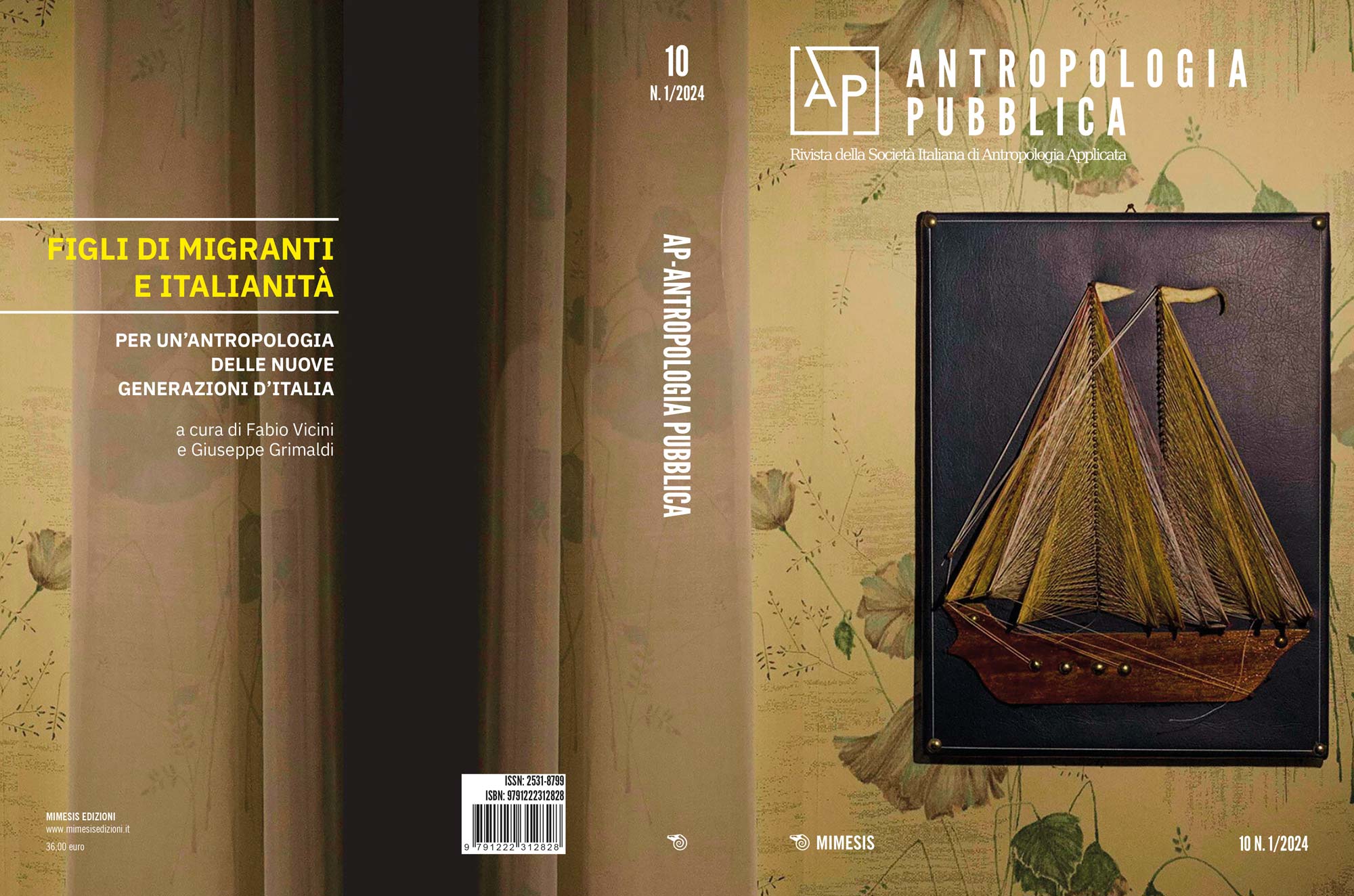Italians do not Spit on the Floor. The Interiorisation of the State Cultural Fundamentalism among Young People
DOI:
https://doi.org/10.7413/2531-8799009Keywords:
cultural citizenship; civic turn; integration; migrant islam, meritocracy.Abstract
The sentence “Italians don’t spit on the ground” (Gli italiani non sputano per terra) echoes the statement by which a young man from a migrant family draws a symbolic border between those who deserve to be in Italy, and the undeserving. The cultural fundamentalism practiced by the state and many natives, which is based on an atavistic and exclusionary conception of culture and citizenship, is suffered on a daily basis by the young Muslim people of Bangladeshi descent featured in this article, but they in turn internalize this ideology, encouraged by brilliant careers. Based on the interpretation of interviews and other materials collected during an ethnographic research that took place in Rome between 2018 and 2020, we will see how their endorsement of a hegemonic rhetoric of “integration and security” informs three discursive movements (critique of the migrant person, critique of mobility, and critique of migrant Islam) that are resolved through an ideology of “merit”. In this way my interlocutors reproduce an exclusionary nationalism that increasingly characterizes Western societies since the so-called civic turn by discriminating between descendants of migrant families who are “integrated”, mainly through the acquisition of an “Italian culture” conceived in reifying and ultimately elitist terms, and the undeserving, namely migrant people and their “non-integrated” descendants. Their case sheds light on the relationship between nationalism, citizenship and the production of elites, suggesting that the concept of merit ends up disguising social inequalities, and that there is no escape from the phantoms of exclusionary identities in state thought.



